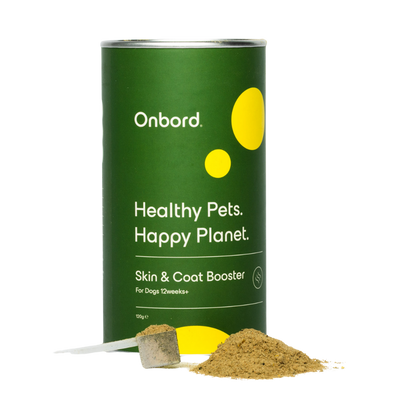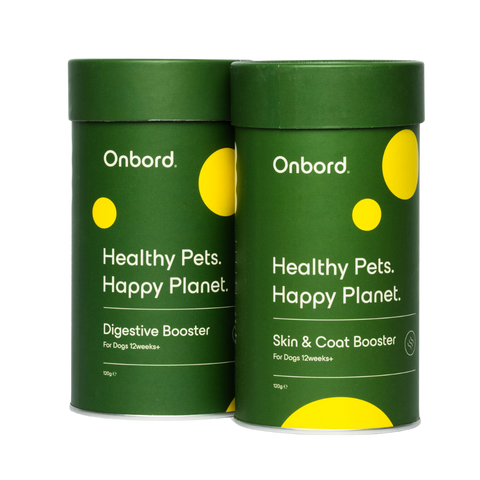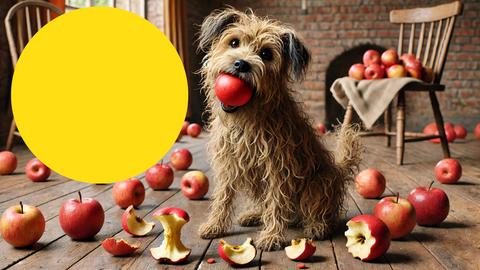Is Pastry safe for Dogs? What to Know Before Sharing Food/Snacks/Sweets with Your Pup
Quick Verdict Dogs should generally avoid eating pastry. A small, accidental nibble of plain pastry is unlikely to cause serious harm, but regular consumption or ingestion of pastries with toxic ingredients should be prevented.
You might be here in a panic because your dog has eaten something unexpected, or perhaps you're simply seeking general information about your dog's diet. The question "Can dogs eat pastry?" is one that many concerned pet owners ask. While an occasional, tiny taste of a plain pastry might not be dangerous, it's important to understand that pastries are not formulated for canine nutritional needs, and caution is always advised.
Scientific Explanation of Canine Digestion
A dog’s digestive system differs significantly from that of a human, being specially adapted to process a high-protein, moderate-fat diet rather than foods rich in refined sugars and carbohydrates. Dogs metabolise certain ingredients—such as the refined sugars, saturated fats, and additives found in many pastries—differently, which can lead to digestive upset or more serious health issues over time. Regular consumption of such foods can disrupt a balanced diet and potentially contribute to problems like obesity, pancreatitis, or other metabolic disturbances.
FAQs
Pastry, including popular varieties like croissants, donuts, Danish pastries, and muffins, is typically high in fat and sugar. For example:
Can my Dogs or Puppies Eat Croissants?: Although light and buttery, their high fat content can contribute to pancreatitis if consumed in large amounts.
Can my Dogs or Puppies Eat Donuts: These are not only sugary but may also include additives such as xylitol or even chocolate, both of which are dangerous for dogs.
Can my Dogs or Puppies Eat Danish Pastries and Muffins: Often contain fillings or mix-ins like raisins, nuts, or chocolate chips, all of which have been linked to toxic effects in canines.
Can my Dogs or Puppies Eat Pre-rolled Puff Pastry (No Yeast): Despite not containing yeast, this type of puff pastry is still rich in butter and high in fat, making it unsuitable for dogs when consumed in significant amounts. Even without yeast, its calorie-dense, flaky composition can lead to gastrointestinal upset and other health issues.
Even a small quantity might not be immediately harmful if it lacks toxic ingredients; however, repeated exposure or larger amounts can significantly increase the risk of health problems.
Special Considerations of Can Dogs Eat Pastry whether Raw vs. Cooked Versions
An additional point to consider is the difference between cooked and raw pastry. Raw puff pastry sheets, for instance, are essentially high-fat, layered dough that hasn’t been baked. The raw form contains concentrated fats and lacks the changes in texture and digestibility that occur during baking. This can make the raw dough more challenging for a dog's digestive system to handle and may lead to gastrointestinal upset or even pancreatitis if consumed in significant quantities. It is advisable to discourage your pet from eating raw pastry altogether.
So... Your Dog "Accidentally" Eats Pastry
If your dog accidentally nibbles on a small piece of pastry that is free from harmful ingredients like chocolate, xylitol, or raisins, there's generally no need to panic. Simply monitor your pet for any signs of distress such as vomiting, lethargy, or changes in behaviour. While an occasional accidental bite is unlikely to cause long-term harm, pastry should not be offered as a regular treat due to its high fat and sugar content, which can lead to health issues like obesity and pancreatitis over time.
What to Do If Your Dog Consumes Pastry
If your dog accidentally eats a small amount of pastry, monitor them closely for any signs of distress such as vomiting, lethargy, or changes in behaviour. Should any concerning symptoms arise, or if your dog consumes a larger quantity, contact your veterinarian promptly for advice on the next steps.
Recommendations and Alternatives
While sharing human food can be tempting, it is important to exercise moderation. Instead of pastry, consider offering treats that are specifically formulated for dogs you can have a look at some of our natural dog treats as some potential options. These treats not only avoid the risks associated with high fat and sugar content but are also tailored to meet their nutritional requirements. Always check ingredient labels and opt for products that do not contain potentially toxic components. Additionally, if you wish to treat your dog with something special, there are many dog-friendly recipes and commercial treats available that are both safe and nutritious.





